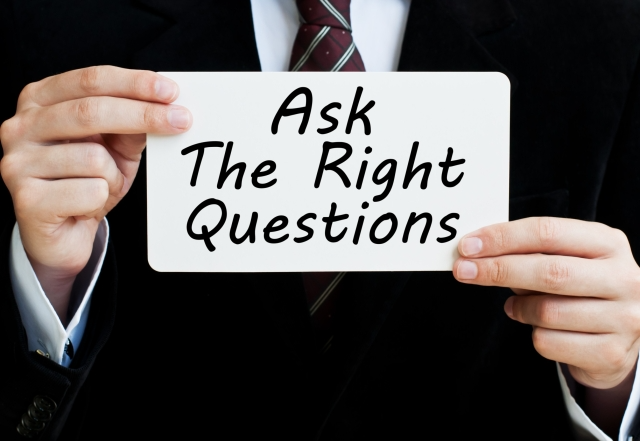The Top 12 Questions to ask at an Interview

It’s important to remember, especially in today’s job market, that in an interview, the company should be selling itself as much as you, the candidate. So, to make sure you’re making the right impression AND you’re going for the right job and, it’s vital you ask the right questions – questions that will extract answers that will give you a true sense of the culture you may be walking into. We ask KPI Director and expert recruiter Lily James what the very best questions are.
- What do you enjoy most about working here?
“People love nothing more than talking about themselves, and interviewers are no exception” says Lily. “This is a brilliant question because the answer can give you real insight into what the culture of the organisation is and whether it’s worth working there.
- What do you find most challenging about working for this organisation?
An even better question than the first one. The answer will offer event more insight. And if the answer is a non-committal “everything is great here,” they may have something to hide. Another way of asking the first two questions is:
- What three words would you use to describe the culture of your company?
This gives puts the interviewer on the spot and doesn’t allow them to waffle. You’ll need to check the validity of their key words as well if they include things like “inclusive” or “Flexible”.
- Can you tell me about the kind of supervision you provide?
“The more junior the role, the more vital this question is,” says Lily. Receiving high quality supervision is important for you but also critical for the business if they want to get the best from you.
- What do the best employees do to succeed in this role?
“This is a fabulous query” says Lily, “as it sets you in the mind of the interviewer as someone who really wants to succeed. It also gives you a roadmap for future success and the ability to show what you’ve achieved against the company’s goals. Another good one is:
- How do you evaluate success in this role?
The answer here should give you a good idea of what it means to do the job well, and whether the company’s values are the same as yours – if they are not aligned – it’s going to lead to stress. Another great question here is: What would you expect me to have achieved after 6 or 12 months in this role? The best journeys start with a good idea of the destination in mind and it’s great to know the expectations before you start. But it’s also nice to know if the organisation is organised enough to have thought about what they want from a new staff member before they begin interviews.
- What does the usual day look like in this job?
“A top question to show you are enthusiastic, particularly if you are a graduate, fresh into the sector or new to the level of seniority,” says Lily. “It subliminally says to the interviewer ‘I’m really interested in this job.”
- Can I meet my potential manager or colleagues during the interview process?
Lily says asking about the team you’ll be working with is important because it shows you are thinking about yourself doing the job. If the answer is ‘no’ that might be a concern to you. Another similar question could be ‘Is there anyone else at the organisation you’d like me to meet with?’
- Is this a new position? If not, why did the previous person leave?
While it might be uncomfortable to ask, asking this shows you’re on the ball, and interested in how the organisation works. Knowing if the person in the role before you was fired, promoted or left of their own accord is valuable to know before you dive into the same position.
- What changes are coming up for your business?
Change is usually the most constant presence in most businesses. If the company interviewing you is switched on, they’ll be able to give you a clue of the challenges coming your way in the first few months.
- Is there anything else I can provide to help you make your decision?
Lily says this is a solid question – “it shows the candidate is switched on,” as well as demonstrating enthusiasm and confidence. Another similar question that’s good is: Do you have any hesitations about my qualifications or experience? “Asking this could place you in a vulnerable position,” says Lily, but it also “puts the interviewer on the spot,” but it shows you’re confident enough to confront and discuss your weak points.
- What are the next steps in your recruitment process before you can make an offer?
“This is a good ‘next steps’ question – great for a candidate to ask last as it closes up the interview,” Lily says.
Last but not least, there’s the question of how many questions to ask. Don’t ask them all! “There’s no perfect number of questions you should ask, but more than one is usually good, says Lily. “Candidates should always ask at least two or three questions. And if that’s not enough to really find out all that you want to know, just check with the interviewer and they should be happy to tell you how many questions they have time to answer.”
Lily James was responsible for recruiting, building and leading a team before moving into the recruitment industry where she has worked for the last 12 years. Lily is now a Director at KPI and oversees KPI Executive which recruits for professional and boardroom roles throughout the UK.

